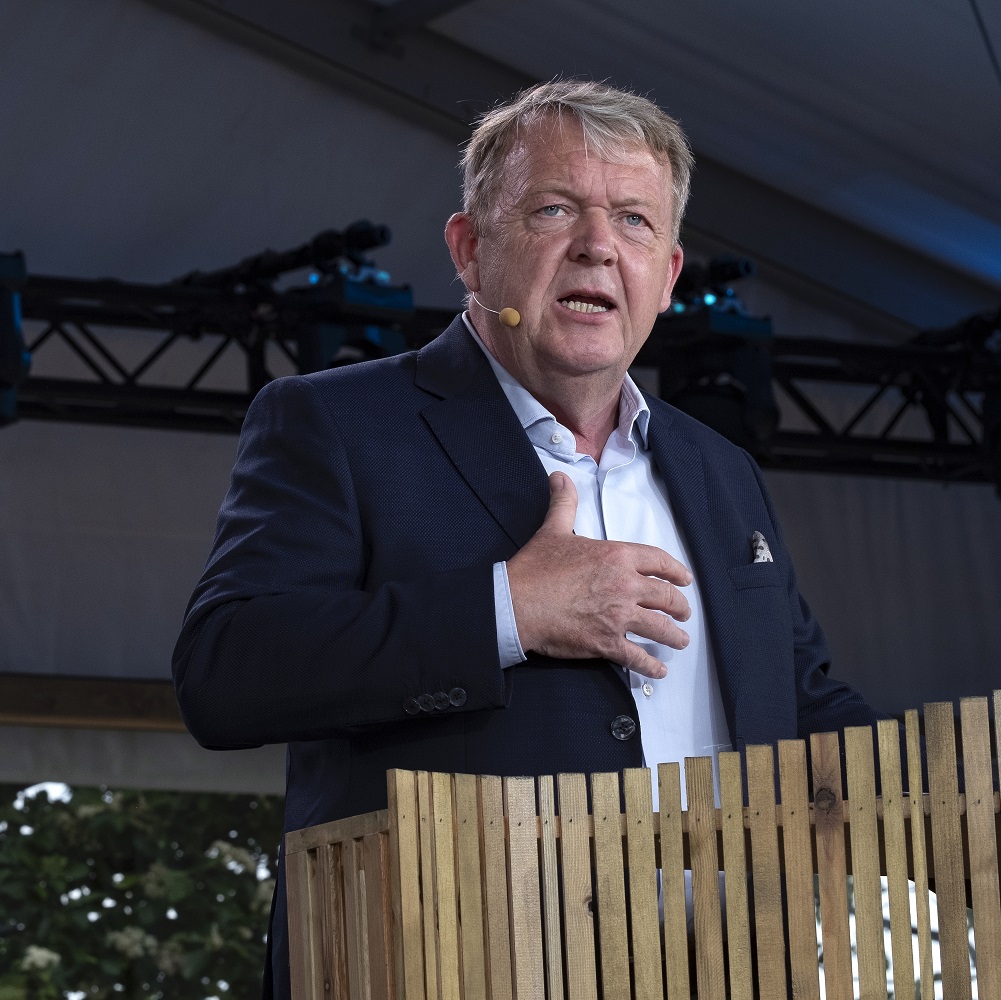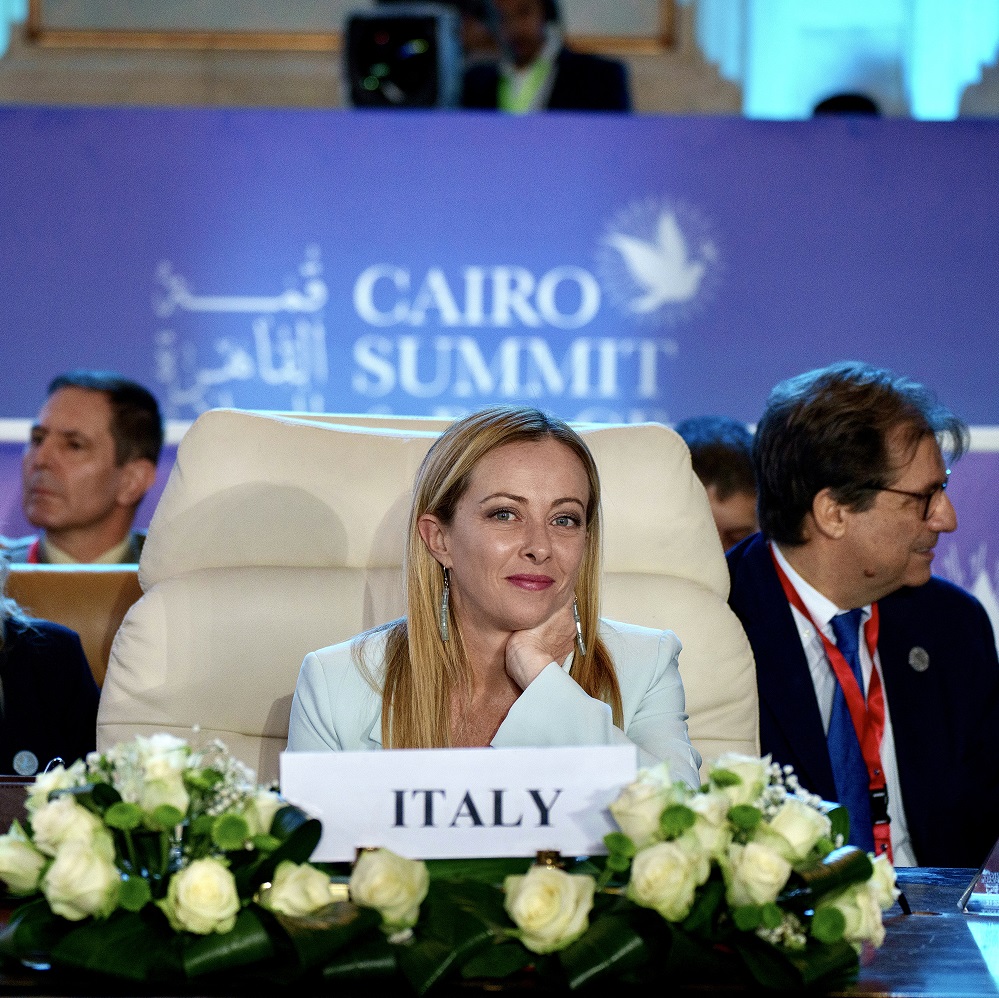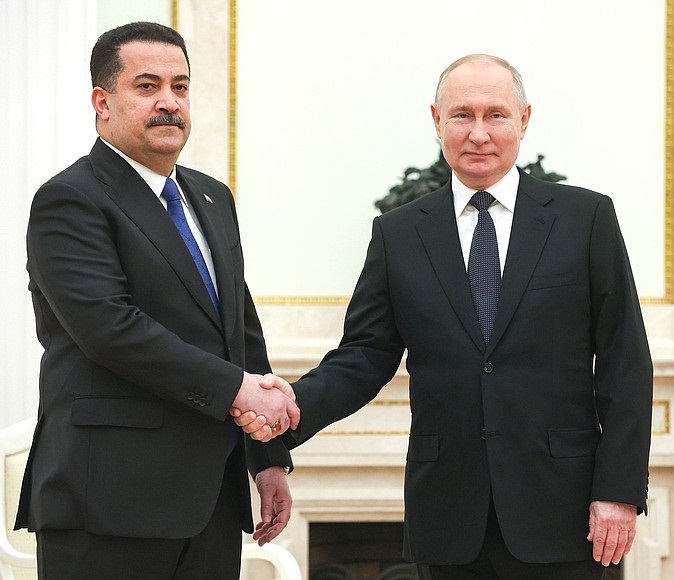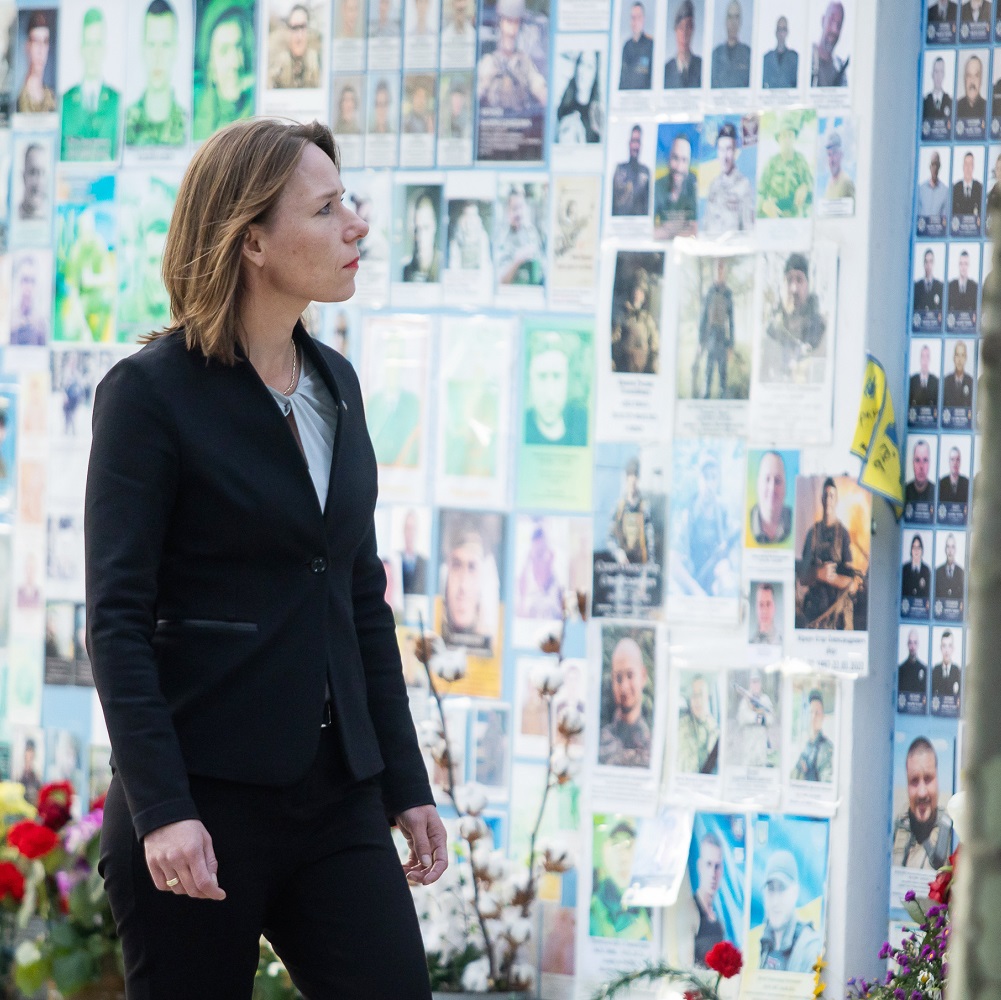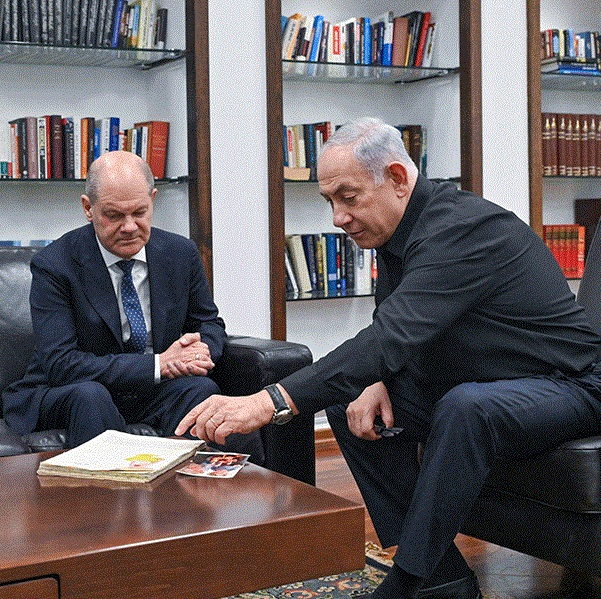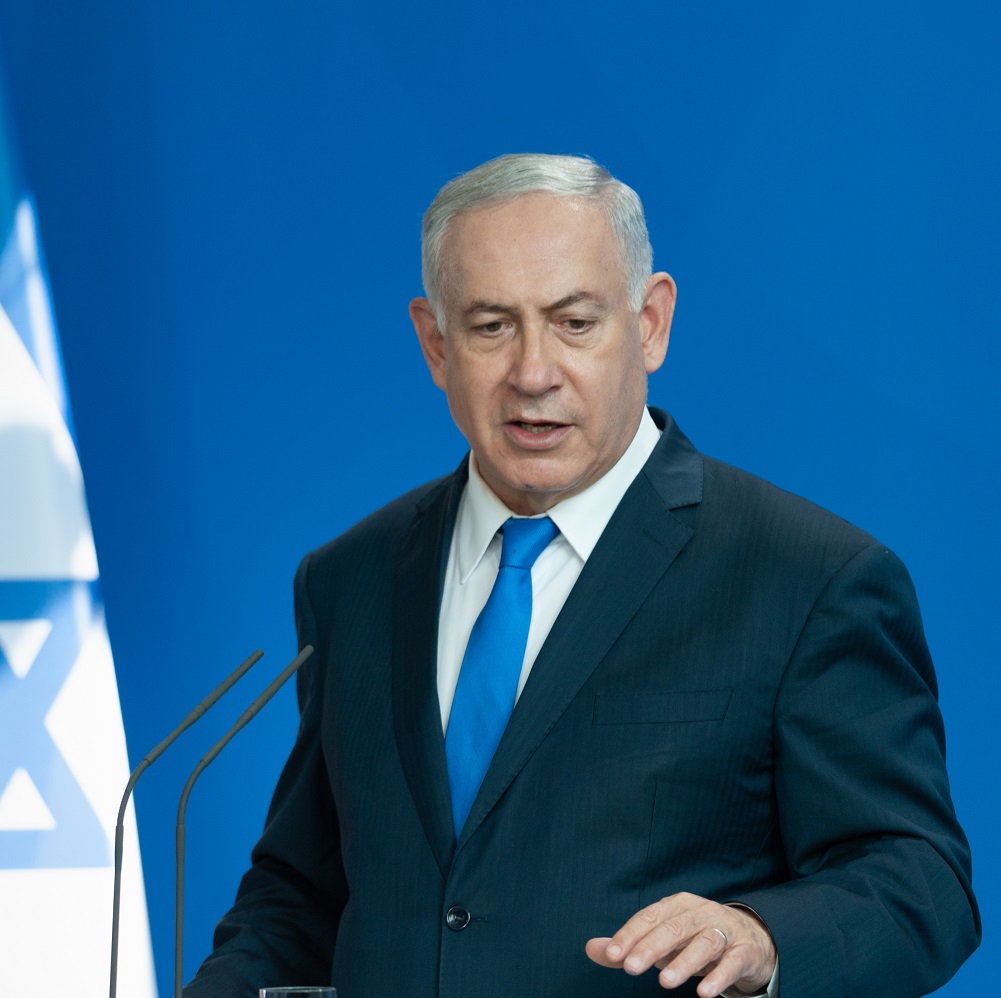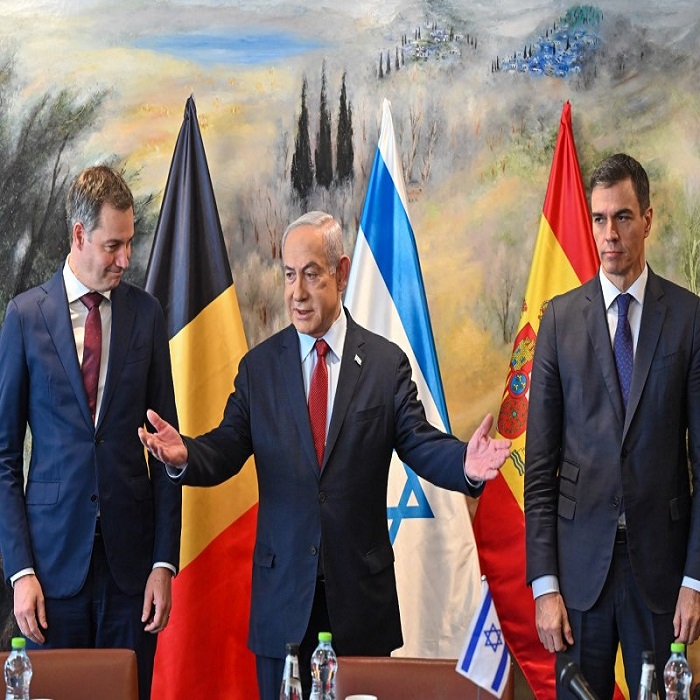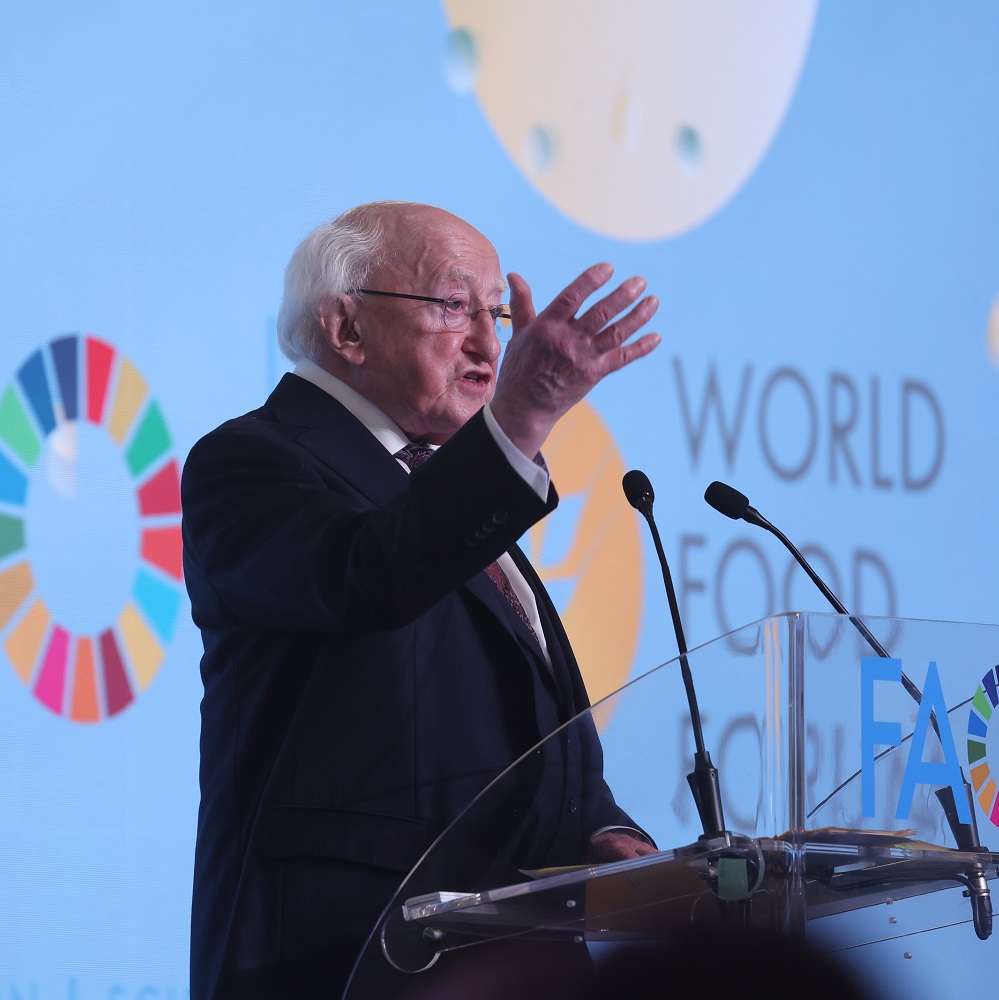
Keynote address the Closing Ceremony of the World Food Forum
by Michael D. Higgins
Director-General, Your Excellencies, Distinguished Guests, Dear Friends, Young and Old, This week, as we have gathered here at the World Food Forum in the headquarters of the Food and Agriculture Organisation of the United Nations in Rome to discuss the necessary transformation of our agri-food systems, we must not only be conscious of targets missed or imperfectly achieved, but of the need for courage, and to generate new capacity to move to new models of better connection between economy, social protection, social justice and ecology. We are confronted with a climate and biodiversity emergency that cannot be handled by the tools that produced it or by the architecture of how we made decisions before. We are called upon to, once and for all, tackle with alternatives and sustained effort and innovation, the vicious circle of global poverty and inequality, global hunger, debt and climate change, our interacting crises. That is the context in which sustainable food systems must be achieved. I ask you all gathered today to respond in the most meaningful way within your capacity, within your generation, in a way that includes all generations, to the challenge set out by United Nations Secretary-General António Guterres in his recent statements: This is how the Secretary-General put it: “The Sustainable Development Goals aren’t just a list of goals. They carry the hopes, dreams, rights and expectations of people everywhere. In our world of plenty, hunger is a shocking stain on humanity and an epic human rights violation. It is an indictment of every one of us that millions of people are starving in this day and age.” It can be put right but we must change and there is work involved in upskilling in such a way that we can not only identify and critique assumptions of failing models but be able to put the alternative models in place. We have had so many broken promises. Only 15 percent of some 140 specific targets to achieve the 17 UN Sustainable Development Goals are on track to be achieved. Many targets are going in the wrong direction at the present rate, and not a single one is expected to be achieved in the next seven years. However, we have some reasons to be hopeful. When I look around this room today, I see so many engaged and committed people, including young people who have the enthusiasm, energy and creativity needed to tackle the serious structural causes of food insecurity and global hunger. But it is important to acknowledge that young people are not alone in seeking authenticity of words delivered into actions that have an ethical outcome. There are those who have spent their lives seeking a fairer world, one in which hunger would be eliminated – as it can be. We must recognise their efforts. We must work together to harness this collective energy and creativity into strong movements that will deliver, finally, a food-secure world for all. This will require, I suggest, moving to a new culture of sharing information, experiences, insights. As the cuts have taken effect, we must take the opportunity of developing a view, post-silo culture, of sharing insights, and I see FAO as uniquely positioned for this. As Glenn Denning, Peter Timmer and other food experts have stated, achieving food security is not an easy task given how food hunger is “deeply entwined with the organisation of economic activities and their regulation through public policies”, given, too, how governments and markets must work together, how the private, public and third sectors must work together. All of our efforts must have the character of inclusivity. Each of us as global citizens has a responsibility to respond. To ignore it would be a dereliction of our duty of care to our shared planet and its life-forms including our fellow humans and future generations. The Secretary-General’s pleas in relation to the consequences of climate change are given a further terrible reality in the increased and spreading threat of hunger, a food insecurity which is directly affected by the impact of climate change. For example, figures published by the Food and Agriculture Organization of the United Nations show that 26.2 percent of Africa’s population experienced severe food insecurity in 2021, with 9.8 percent of the total global population suffering from undernourishment the same year. It is time for us all, as leaders and global citizens, to take stock of how words are leading to actions, to increase the urgency of our response to what is a grave existential threat and to achieve change. It is clear, as the Secretary-General’s powerful statement shows, that we need to begin the work of reform in our international institutional architecture, such as UN reform at the highest level, including the Security Council and the Bretton Woods institutions, if we are to achieve what the Secretary-General has suggested is the challenge to “turn a year of burning heat into a year of burning ambition”. Let us commit then to sharing purposes, projects, resources, seeking a new culture for sustenance solutions. Those of us who have spent much of our lives advocating UN reform believe that its best prospects are in the growing acknowledgement of the importance of the vulnerabilities and frustrated capacity of the largest and growing populations of the world being represented, not only nominally but effectively, through a reform that includes reform of the Bretton-Woods Institutions. As Secretary-General Guterres has said on a number of occasions, it is time to reform what are 1945 institutions, including the Security Council and Bretton Woods, in order to align with the “realities of today’s world”. We have to acknowledge too that the development models of the 1950s and 1960s were part of the assumptions that brought us to the crises through which we are living. New models are needed and the good news is that a new epistemology, our way of looking at the world, of sufficiency and sustainability, is emerging. We are seeing good work already occurring. Good development scholarship is available to us. I reference, for example Pádraig Carmody’s recent book, Development Theory and Practice in a Changing World. Such work builds important bridges from the intellectual work that is so badly needed and is welcome at the centre of our discourse on all aspects of interacting crises, including global hunger, and the need to link economy, ecology and a global ethics. What we must launch now is a globalisation from below. Replacing the globalisation from above that has given us a burning planet and threatened democracy itself, with a globalisation from below of the fullest participation, we can establish and indeed extend democracy, offering accountability and transparency of our work together. Writers such as Pádraig Carmody are not alone in suggesting that achieving the Sustainable Development Goals provides the opportunity for moving past the worst contradictions of failed models and dangerous undeclared assumptions. The demise of hegemonic development theory and practice may be a result of several factors, such as the rise of ultra-nationalism around the world, the increasing importance of securitisation where the most powerful insulate their lives from the actions of the excluded, and the existential threat posed by the climate crisis. Such research adds to the growing body of development literature that argues for a pro-active, structural-focused, tailored approach to development. The Hand-in-Hand Initiative of the FAO, details of which were discussed at this week’s parallel session, is a most welcome initiative, one that aims to raise incomes, improve the nutritional status and well-being of poor and vulnerable populations, and strengthen resilience to climate change. It heralds a belated recognition too of the insufficiency of a reactive emergency response to famine and hunger crises. It suggests a move towards one that tackles the underlying structural causes of hunger. Young people will need patience and to dig sufficiently deep to achieve these necessary changes. They are right in seeking to be partners, so much more than being allowed as attendees. Hand-in-Hand recognises the importance of tailor-made interventions to food security, using the best available evidence in the form of spatial data, validated on the ground through local diagnostics and policy processes, to target the most food insecure, the most hungry, the poorest. It recognises that context-specific employment and labour market policies are part of the sustainability challenge. I believe that evidence from below is crucial to achieving globalisation from below and that it can be achieved by a reintroduction of new re-casted anthropology guided by, among others, the new African scholars now available, whose work is empirical and peer-tested, can be invaluable in giving transparency on projects and investments – a strategy for fact-gathering for empowerment of rural people so like the 1955 fact-gathering with rural people of the FAO – first published in 1955 and used by me in 1969! Young people must be about upskilling to be able to critique all of the assumptions guiding the policies on to their lives. A key objective for us now must be to strengthen institutional capacity on the ground, not only at the strategic level, but also fundamentally, so that the public, farmers, and other stakeholders’ institutions are enabled to participate in territories-based agri-food systems. Such a move is fundamental to a successful food security strategy. Our institutional architecture and the multilateral bodies within it, must be made fit for purpose if we are to tackle effectively and meaningfully our contemporary food insecurity crisis which is worsening according to the 2023 Global Report on Food Crises, with 258 million people across 58 countries suffering acute food insecurity. Perhaps most crucially, we must acknowledge, as United Nations Programmes such as the Hand-in-Hand Initiative does, the critical importance of partnership and collaboration in addressing global hunger. We must do everything we can to ensure cross-sectoral co-ordination, foster coherent development actions, under a common, shared vision. We must end all wasteful competitive silo behaviours, create a culture of openness and co-operation. The FAO is well positioned to lead on this with its new invigorated partnerships with the World Food Programme (WFP) and the International Fund for Agricultural Development (IFAD). Co-operation in the development and implementation of new models will be key to the achieving of any targets that seek to be sustainable and inclusive. For example, I suggest it will achieve best results if funders, such as the African Development Bank, are enabled and funded to work closely with research institutes, both at the national and international level, but particularly take account of field studies conducted over time at local level in the new anthropology so as to ensure that findings from the latest research feed into the design and implementation of any financial supports and investments. By providing a platform, a shared interactive transparent space for national authorities and producers, national and global businesses, multilateral development banks and donors to discuss and advance ways and means to finance the supported national food programmes, initiatives such as Hand-in-Hand are proving to be an effective flagship programme of the Food and Agriculture Organisation of the United Nations. Co-operation must work both ways. For example, the parts of the so-called ‘developed’ world suffering from problems of high levels of obesity and food wastage must learn from the deep knowledge and wisdom existing in the most populated continents, as well as the science, which points to a new ecological revolution, one in which agroecology – the bringing of ecological principles to develop new management approaches in agroecosystems – can play a fundamental role, especially for the poorest of our global citizens. We have seen the destructive impact of colonial models of agronomy promoting an over-reliance on a small number of commodity crops, herders incentivised to become less mobile and store less grain in order to maximise commodity crop production, and increasing imports in conditions of near monopoly of seeds, pesticides and fertilisers. This had the deadly effect of opening up farmers not only to the full force of extended droughts, the ravages of variable climate conditions, and a reliance on non-indigenous inputs, but also to global spaces where they have insufficient influence. We must retreat from these dysfunctional food systems model, with their related dependencies, with urgency and embrace models of sufficiency and effective local markets and see the value of making our way too that includes agro-ecological models that promote food security and development opportunities for the poorest people on our fragile planet. Adaptation and responding to the already changing climate is crucial for all of us, and especially in the most food-insecure nations. We must restore degraded ecosystems, introduce drought-resistant crops, ensure accessible digital services for smallholder farms, while creating new, sustainable green jobs for young people so that we may forge a smart, sustainable, climate-resilient development path for the continent. This week we have to acknowledge the many challenges we face including, inter alia, the energy, climate and biodiversity crises, war and conflict which exacerbate food insecurity, ensuring enabling policy environments, and reaching the long-term goal of sustainable food system transformation. Any agri-food initiative, be it for Africa, the Middle-East, Central or South America, or other food-insecure regions, must place inclusivity at its core. Specifically, more vulnerable, smallholder farmers must be targeted for inclusion as programme beneficiaries, not just large-scale, industrial level farmers and ever-expanding commercial plantations. Research has shown that irresponsible agri-business deals are sometimes falsely legitimated by the promotion of alleged achievement of Sustainable Development Goal Number 2 at any cost, without care as to consequence, ignoring the reality that smallholders need enabling policies to enhance their role in food production; that food insecurity is linked to rights, processes, and unequal access to land resources; and that dispossession disproportionately affects women farmers. On this latter issue of gender, achieving zero hunger requires gender-inclusive land and labour policies. Actions must prioritise the inclusion of women and girls who are more food insecure than men in every region of the world. Women must have a right to land recognised and enshrined. The gender gap in food security has grown exponentially in recent years, and will only deteriorate further in the absence of targeted intervention. Women are obviously the most impacted victims of the food crisis, thus they must be a part of the solution. Women produce up to 80 percent of foodstuffs. Empowering women farmers can thus serve as a transformative tool for food security. However, female farmers have, research tell us, limited access to physical inputs, such as seeds and fertiliser, to markets, to storage facilities and this must be addressed. Climate change, and our response to it, addressing global hunger and global poverty, exposing and breaking dependency is a core theme of my Presidency. It is the most pressing existential crisis that our vulnerable planet and its global citizens face. Throughout the world, young people and the youth sector have been at the vanguard of efforts to tackle climate change. Young people have demonstrated, time and again, how well-informed and acutely aware they are of the threat that climate change poses, as well as its uneven and unequal impacts. May I suggest to all of you that, as young innovators and future leaders in your respective fields, you will be at your best, achieve the greatest fulfilment for yourself and others, when you locate your contribution within a commitment to be concerned and contributing global citizens. Take time to ask how is my energy in the tasks of hand and brain being delivered and for whose benefit. May I suggest, too, that you will be remembered and appreciated all the more if you work to ensure that the results of science, technology are shared and that all human endeavours are allowed to flow across borders for the human benefit of all and with a commitment to ecological responsibility and inclusivity. Offer your efforts where they can have the best effect for all. Locate yourselves in the heart of the populated world, as Nobel Laureate William Campbell did with his research on river blindness. Changing our food systems is, however, let us not forget, an intergenerational challenge that requires an inter-generational approach. We must now empower youth to be in the driver’s seat to build a new, better, transparent model of food security in a variety of different settings. Let us endeavour, together, in our diverse world, to seek to build a co-operative, caring and non-exploitative global civilisation free from hunger, a shared planet, a global family at peace with nature and neighbours, resilient to the climate change that is already occurring, one based on foundations of respect for each nation’s own institutions, traditions, experiences and wisdoms, founded on a recognition of the transcendent solidarity that might bind us together as humans, and reveal a recognition of the responsibility we share for our vulnerable planet and the fundamental dignity of all those who dwell on it. Thank you. Beir beannacht.









